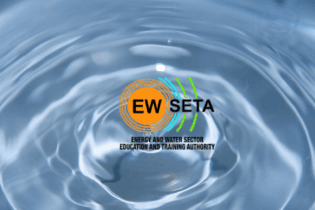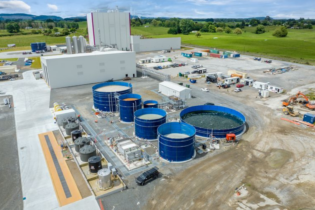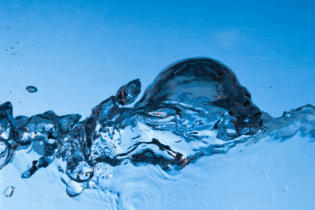Durban is set to become the first city in the country to begin desalinating seawater for drinking-quality tap water – but residents will probably also have to swallow purified sewage water because of a serious water supply shortage over the next seven to 10 years.
Umgeni Water confirmed last Thursday that it was hoping to build one or two large seawater desalination plants on the Durban coastline, near Tongaat in the north and Illovo in the south. Steve Gillham, general manager of Umgeni Water’s technical and scientific services, told a media briefing that a detailed feasibility study was under way and should be finished by the middle of next year. Depending on which option was chosen, Umgeni was hoping to produce about 150 million litres of desalinated water using reverse osmosis technology. Umgeni also hoped to appoint an independent practitioner next month to begin the environmental impact assessment (EIA) process. If it went ahead, the project would involve pushing pipelines about a kilometre long out to sea to collect sea water, with separate pipes to discharge the brine (concentrated salt water waste). Several buoys had recently been deployed into the sea off Durban to collect data on sea water quality and ocean currents as part of the feasibility study. Gillham said Umgeni’s decision on whether to build one or two desalination plants could depend on the results of a separate EIA process that was under way for eThekwini’s proposed toilet-to-tap water purification project. According to documents published earlier this month by eThekwini, the metropolitan area is at a high risk of water shortage for at least the next seven years unless new sources can be found.“Critical water shortage coupled with increased water demand have bought eThekwini Municipality to a critical point and the issues of water supply and use cannot be deferred,” according to a basic assessment report published by Golder Associates on behalf of the municipality.
“The implementation of water reuse (ultra-filtered sewage water) will ensure that water supply in eThekwini will be secure for seven years, thereafter allowing for the phased implementation of desalination schemes and various (new) dams.” Although the national department of Water Affairs has plans to build a large dam on the uMkhomazi river, eThekwini officials suggest that this project is unlikely to begin before 2022 at the earliest. To remove the sewage, bacteria, bodily fluids, chemicals and other pollutants, the proposed Durban sewage water-to-tap water purification project involves three phases of treatment – ultra-filtration membranes, reverse osmosis and advanced oxidation. If it goes ahead, the sewage purification project would produce about 116 million litres of tap water a day from the Kwamashu and Northern wastewater treatment works. This water would be blended at a ratio of 30% (new water) to 70% of conventionally treated river and dam water to supply Durban North, uMhlanga, KwaMashu, Reservoir Hills and other suburbs in the north Durban area. Source: iol





